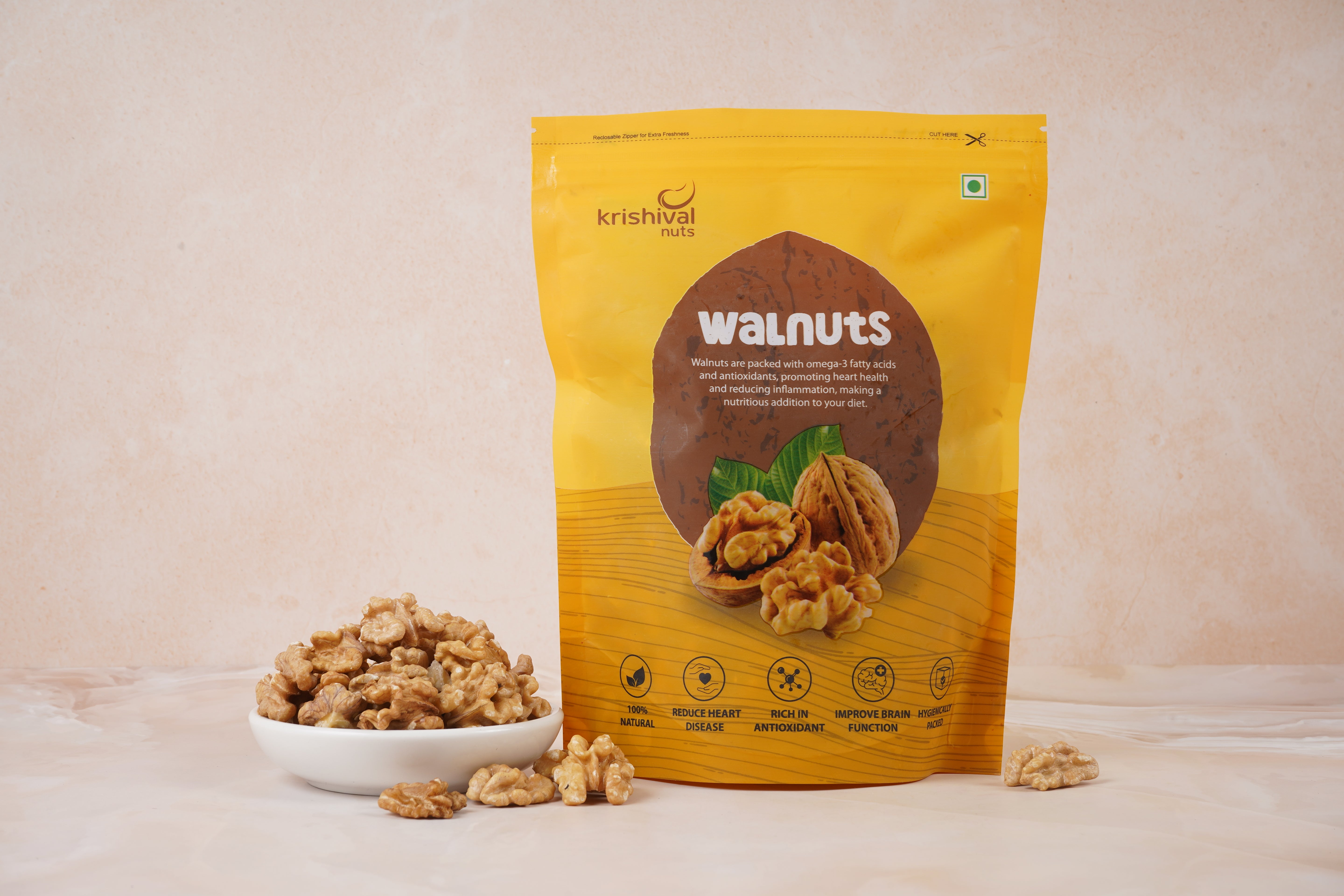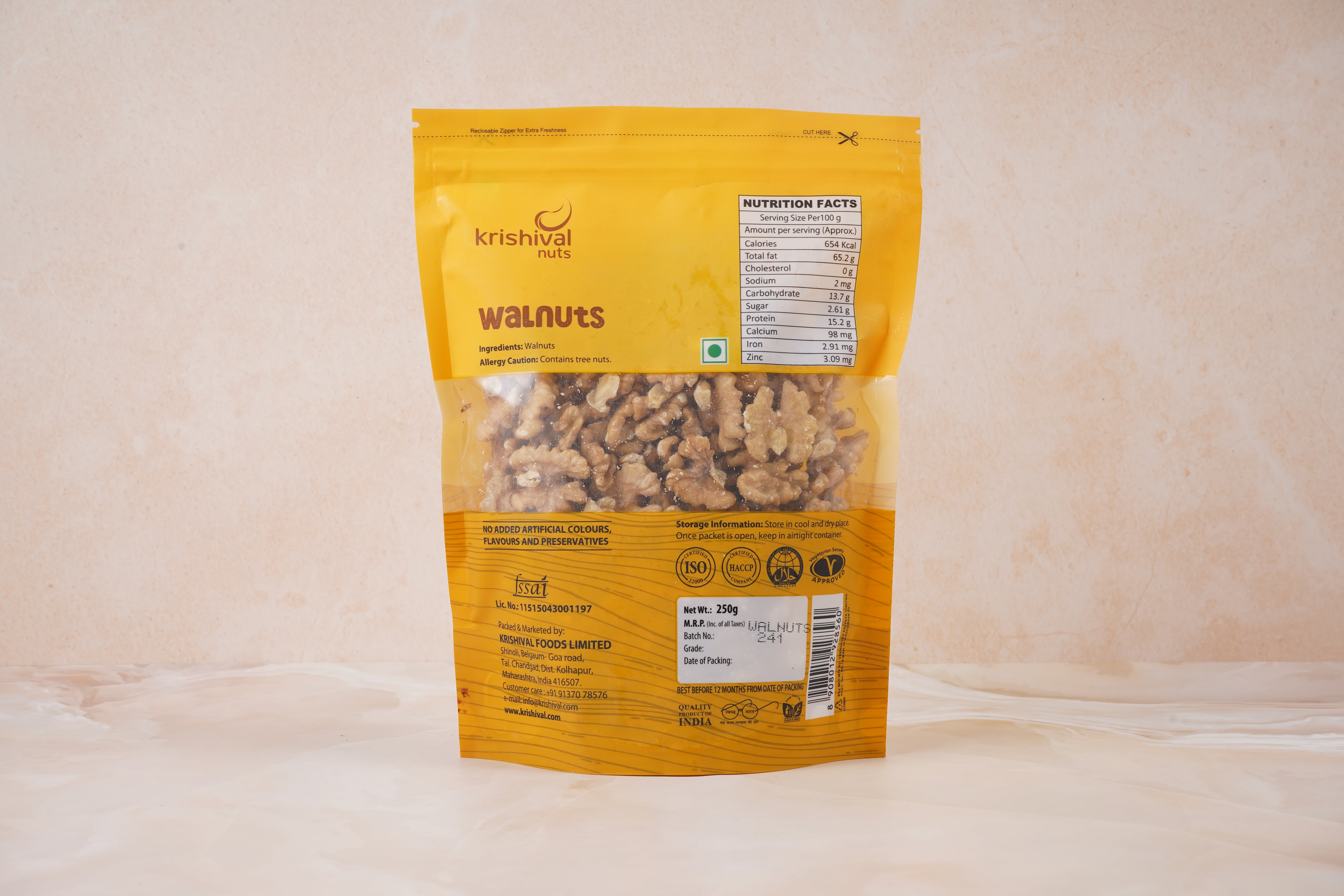Almonds and chia seeds are two nutrient-dense superfoods that offer various health benefits. While almonds are known for their high vitamin E and protein content, chia seeds are often praised for their fiber and Omega-3 fatty acid levels. But when it comes to Omega-3, which one truly stands out? This detailed comparison will help you decide the better option based on nutrition, benefits, and dietary suitability.
Nutritional Comparison of Almonds vs Chia Seeds
Understanding their macronutrient and micronutrient differences is key when comparing these two power-packed foods. Below is a breakdown per 100 grams:
|
Nutrients |
Almonds |
Chia Seeds |
|
Calories |
~579 kcal |
~486 kcal |
|
Protein |
21g |
17g |
|
Fat |
50g |
31g |
|
Saturated Fat |
3.7g |
3.3g |
|
Omega-3 Fatty Acids |
~0g |
~17.8g |
|
Omega-6 Fatty Acids |
~12.1g |
~5.8g |
|
Carbohydrates |
22g |
42g |
|
Fibre |
12g |
34g |
|
Calcium |
269mg |
631mg |
|
Magnesium |
270mg |
335mg |
|
Iron |
3.7mg |
7.7mg |
Key Takeaways:
-
Chia seeds are significantly higher in Omega-3 fatty acids, making them the clear winner for brain and heart health.
-
Almonds provide more protein and healthy fats, making them a great snack for muscle recovery and energy.
-
Chia seeds contain more fiber, which aids digestion and helps in maintaining gut health.
-
Both are nutrient-dense, offering a variety of essential minerals such as calcium, magnesium, and iron.
Health Benefits of Almonds vs Chia Seeds
Almond Benefits
-
Heart Health: Almonds are rich in monounsaturated fats, which help lower bad cholesterol levels and reduce heart disease risk.
-
Brain Function: High vitamin E content supports cognitive function and prevents oxidative stress, which can reduce the risk of neurodegenerative diseases like Alzheimer's.
-
Weight Management: The protein and healthy fats in almonds help promote satiety and reduce cravings, making them an excellent snack for those trying to lose weight.
-
Bone Health: Almonds provide significant amounts of calcium and magnesium, which are essential for strong bones and preventing osteoporosis.
-
Blood Sugar Regulation: Almonds have a low glycemic index and can help regulate blood sugar levels, making them a good option for diabetics.
Chia Seeds Benefits
-
Rich in Omega-3s: Chia seeds contain high levels of ALA (alpha-linolenic acid), a plant-based Omega-3 that supports brain and heart health by reducing inflammation.
-
Improves Digestion: High fiber content aids in digestion, prevents constipation, and promotes healthy gut bacteria.
-
Regulates Blood Sugar: Chia seeds slow down the absorption of carbohydrates, preventing blood sugar spikes and helping with diabetes management.
-
Supports Hydration: Chia seeds absorb water and form a gel-like consistency, which helps maintain hydration levels and can be beneficial for athletes.
-
Enhances Skin Health: The antioxidants and Omega-3s in chia seeds help combat oxidative stress, reducing signs of aging and improving skin elasticity.
Potential Downsides of Almonds vs Chia Seeds
-
Almonds are high in Omega-6 fatty acids, which can cause inflammation if not balanced with Omega-3 intake.
-
Chia seeds contain antinutrients like phytic acid, which can interfere with mineral absorption.
-
Both are calorie-dense, so they should be consumed in moderation.
-
Chia seeds, if consumed dry without enough water, may cause choking or digestive issues.
How to Incorporate Almonds vs Chia Seeds in Your Diet
-
Almonds: Eat them raw, add them to oatmeal, blend into smoothies, or use almond butter.
-
Chia Seeds: Sprinkle over yogurt, mix into smoothies, make chia pudding, or add to water for a hydrating drink.
-
Combine both: Make energy bars or mix them into cereal for a nutrient-packed breakfast.
FAQs
1. Which has more Omega-3: almonds or chia seeds?
Chia seeds contain significantly more Omega-3 than almonds. They provide around 17.8g per 100g, whereas almonds contain almost none. If your goal is to increase Omega-3 intake, chia seeds are the clear choice.
2. Can I eat almonds and chia seeds together?
Yes! Combining them provides a balance of healthy fats, protein, and fiber. You get the Omega-3 benefits from chia seeds and protein from almonds, making it a powerful nutritional combo.
3. Are almonds good for brain health?
Yes, almonds contain vitamin E, which supports cognitive function, protects against oxidative stress, and reduces the risk of age-related cognitive decline. Regular consumption may help improve memory and focus.
4. Can chia seeds help with weight loss?
Yes, their high fiber content keeps you full longer, reducing appetite and overall calorie intake. When soaked, they expand in the stomach, creating a feeling of fullness, making them a great addition to a weight-loss diet.
5. Do almonds or chia seeds have more protein?
Almonds have more protein (21g per 100g), making them better for muscle growth and repair. Chia seeds contain around 17g per 100g, which is still a good amount for plant-based protein sources.
6. Which is better for digestion: almonds or chia seeds?
Chia seeds are better due to their high fiber content. They promote gut health, prevent constipation, and support healthy digestion.
7. Are almonds or chia seeds better for heart health?
Chia seeds are superior because of their Omega-3 content, which helps reduce inflammation and lower the risk of cardiovascular diseases. Almonds, however, also contribute to heart health with their monounsaturated fats.
8. How much Omega-3 should I consume daily?
The recommended intake is about 1.6g for men and 1.1g for women. A single tablespoon of chia seeds provides more than the daily requirement, making them an excellent dietary source.
9. Can I replace fish oil with chia seeds for Omega-3?
While chia seeds are a good plant-based source, fish oil contains DHA and EPA, which are more bioavailable and beneficial for brain function. Chia seeds provide ALA, which the body converts to DHA and EPA at a lower rate.
10. How can I maximize Omega-3 absorption from chia seeds?
Soak them in water or grind them before consumption for better absorption. Whole chia seeds may pass through the digestive system without fully releasing their nutrients, so proper preparation is key.








